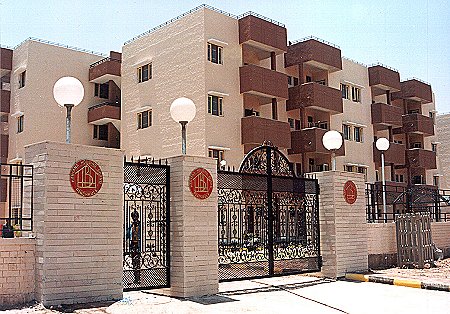 By Mr. Avikshit Moral and Ms. Almitra Gupta, Juris Corp
By Mr. Avikshit Moral and Ms. Almitra Gupta, Juris Corp
Land in Mumbai is one of the scarcest resources today. This is one of the reasons why the city is growing horizontally. Given the limited resources, redevelopment of co-operative housing societies in Mumbai has been a subject of great interest for the developers in recent years as it is one of the most feasible options. In several instances of redevelopment, the members are not able to reach a consensus and as such a few members have at times approached the courts for relief. Under a typical redevelopment scenario, all the members of the co-operative housing society are to get, on ownership basis, flats in the redeveloped building. As an incentive, the members are given additional area in their new flats and they are also paid rent for alternate accommodation during the period when the new building is being constructed. However, in certain cases either to extract additional benefits/amounts or for extraneous consideration, certain members object to such redevelopment and initiate proceedings which continues for several years, stalling the redevelopment project and causing unbearable and irreparable hardship to the majority members and the developer.
In a recent ruling, a division bench of the Bombay High Court (“Court”) on 10th July 2015 has given two dissenting members a week’s time to vacate their flats, or lose Rs.2.5 lakhs of the
7 lakhs corpus amount promised by the builder for redevelopment. This case pertains to the Young Men’s Co-operative Housing Society (“Society”) in Four Bungalows, Lokhandwala, built in 1990 and comprising of 20 flats. The Court held that a small minority of dissenting members cannot hold a Society and an overwhelming majority of members to ransom and hinder the redevelopment process to commence. Specific to the facts of this case, the redevelopment was unanimously approved by the 20 member strength of the Society. At the special general meeting of the Society in 2010, the dissenting members has given their consent and stated that they had no objection to the redevelopment. Consequently, the Development Agreement was executed. Post obtaining all the requisite permissions in 2013, the Society agreed to vacate the flats and authorized the developer to demolish the apartments. The Secretary to the State Government granted NOC to the Society to have 80% members from open category and 20% members from the reserved category (“80:20 rule”)as the land was reserved for‘Post War Construction Scheme’. At this juncture, the dissenting members refused to vacate their premises thereby stalling redevelopment and challenged the NOC issued to the Society by way of a writ petition. Simultaneously, the developer filed an arbitration petition before the Court praying for an order to direct the dissenting members to hand over possession of their flats to the developer. The present case came up as an appeal from the order of the single judge of the Courtdated8th May 2015 appointing a Court Receiver to take over possession of the two flats. The single judge of the Court held that the dissenting members were blackmailing the developer to extract maximum possible benefits from the developers and their conduct completely lacks bona fides. The main argument of the dissenting minority members was that the plot on which the Society stands was demarcated under ‘Post War Construction Scheme’ for backward families and therefore the Society could not have decided to go for a redevelopment by the 80:20 rule.
After a detailed hearing of the contentions raised by both parties, the Court in no uncertain terms held that a member of the co-operative society cannot assert a right in respect of a flat occupied by him independent of the rights of the co-operative society. In the Court’s view, each of the dissenting members continues to be a member of the co-operative society and continues to be bound by the agreement that was entered into by the society with the developer. The Court in unequivocal terms held that having initially agreed to participate in the redevelopment project entrusted by the Society, the dissenting members are estopped from raising contentions which are inconsistent with or destructive of the resolutions passed by the Society.
The recent judgment in Young Men’s reiterates the elementary principle that ‘majority prevails’ and that ‘united we stand and divided we fall’. This precedent evidently would be welcome by the developer community as also by everyone alike. Given the spate of differing views taken by the Court in the recent years, this judgment could act as a shield and a sword for both the developers and the dissenting members of a co-operative society in realty industry.





